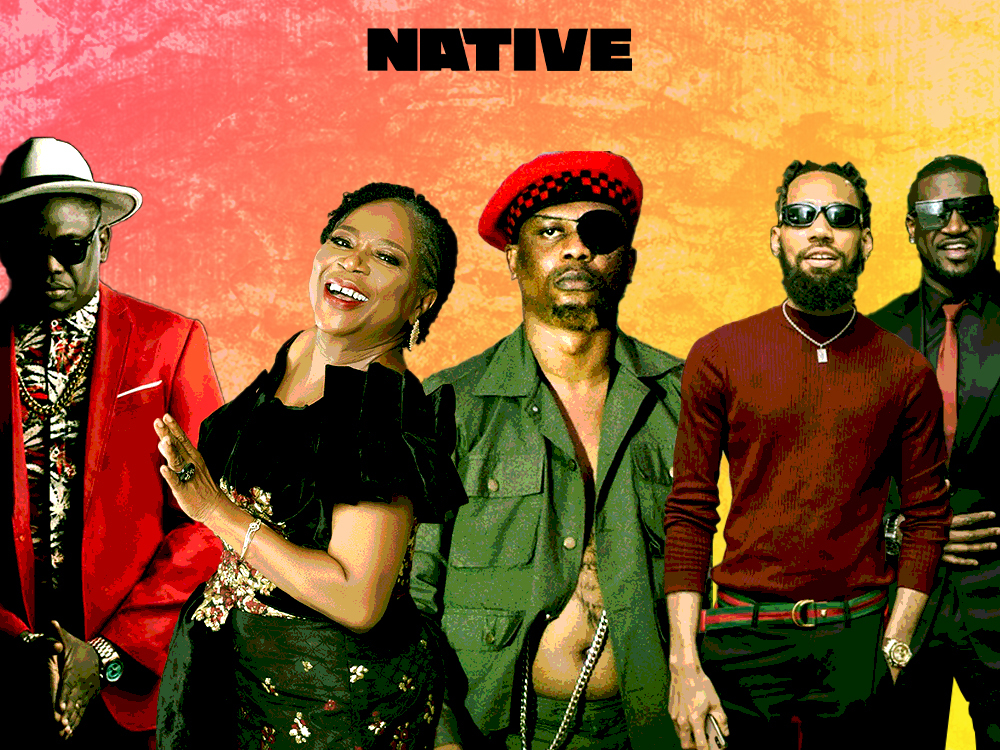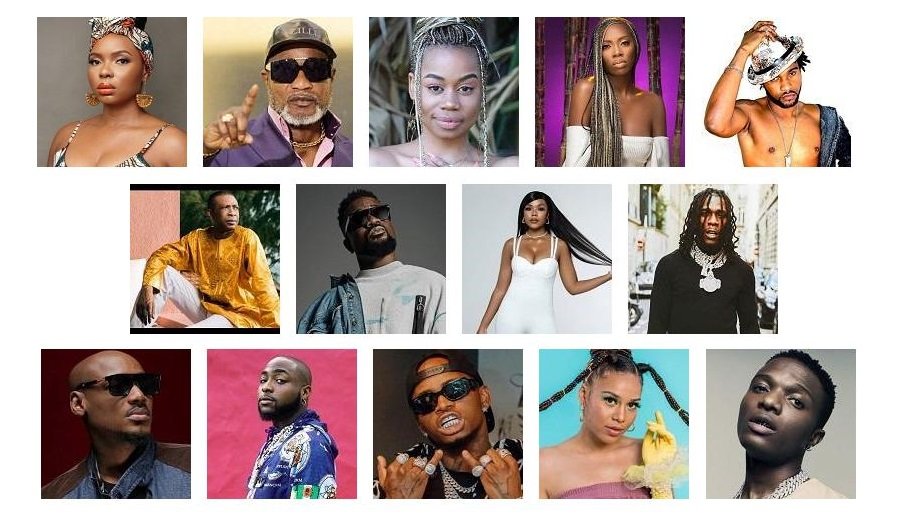For far too long, the narrative surrounding Africa on the global stage has been tethered to a limited set of perceptions, often focusing on challenges, historical narratives of hardship, or the grandeur of its wildlife. While these facets are part of the continent’s complex reality, a profound and exhilarating transformation is currently underway, redefining Africa’s global image: a cultural boom of unprecedented scale and influence. At the vanguard of this artistic revolution are two potent forces: the infectious rhythms of Afrobeats and the prolific storytelling of Nollywood.
These vibrant cultural exports are not merely entertaining; they are powerful conduits of “soft power,” reshaping global perceptions, fostering deeper cultural understanding, and generating significant economic revenue. Africa, the continent of incredible diversity and ancient heritage, is now confidently asserting its contemporary voice, inviting the world to dance to its beat and lose itself in its captivating stories.
Afrobeats: The Sound of a Global Movement
The soundscape of the 21st century would be incomplete without the pulsating rhythms of Afrobeats. Originating primarily from Nigeria, this genre has transcended regional boundaries to become a formidable global phenomenon, captivating audiences from Tokyo to Toronto, London to Los Angeles. Artists like Burna Boy, Wizkid, Davido, Tems, Rema, and CKay are not just topping global charts; they are selling out stadiums worldwide, collecting prestigious international awards, and redefining the very fabric of popular music.
From Afrobeat to Afrobeats: A Rich Evolution
To understand Afrobeats, it’s essential to distinguish it from “Afrobeat,” the politically charged, funk-infused genre pioneered by the legendary Fela Kuti in the 1970s. While Afrobeat is a foundational influence, “Afrobeats” (with an ‘s’) is a broader, more eclectic term encompassing a fusion of West African musical styles – including Highlife, Juju, Fuji, and various traditional rhythms – with global influences such as R&B, hip-hop, reggae, dancehall, and pop. Its defining characteristics are its intricate drum patterns, vibrant melodies, catchy hooks, and often romantic or celebratory lyrics, delivered predominantly in Pidgin English, Yoruba, Igbo, and other local languages, alongside English.
The genre’s evolution began in the early 2000s, with pioneers like D’Banj and Don Jazzy laying the groundwork, building upon the legacy of artists from the 80s and 90s who experimented with fusions. The proliferation of affordable recording technology and, crucially, the rise of the internet and social media, provided the platforms for these sounds to reach beyond local dancefloors.
The Architects of Global Domination:
The current wave of Afrobeats stars has masterfully leveraged these platforms.
- Burna Boy (Damini Ebunoluwa Ogulu): A Grammy Award winner, Burna Boy embodies the genre’s fusion, seamlessly blending traditional Nigerian sounds with reggae, dancehall, and R&B. His albums like “African Giant” and “Twice as Tall” are celebrated for their lyrical depth, social commentary, and undeniable grooves. His electrifying live performances have seen him headline major festivals and sell out iconic venues like Madison Square Garden and the London Stadium.
- Wizkid (Ayodeji Ibrahim Balogun): Often referred to as “Starboy,” Wizkid’s smooth vocals and melodic hooks have earned him immense global appeal. His collaboration with Drake on “One Dance” (2016) was a pivotal moment, breaking streaming records and introducing Afrobeats to a vast new audience. His album “Made in Lagos” and its hit single “Essence” featuring Tems, became a global summer anthem, cementing his status as a true international superstar and earning him a Grammy.
- Davido (David Adedeji Adeleke): Known for his high-energy anthems and philanthropic efforts, Davido has consistently churned out hits that resonate both locally and internationally. His accessible sound and charismatic personality have made him a fan favourite, and his extensive collaborations with American artists have further widened his reach.
- Tems (Temilade Openiyi): A powerful vocalist and songwriter, Tems represents the new guard, bringing a distinctive soulful sound to Afrobeats. Her breakthrough on Wizkid’s “Essence” led to collaborations with Drake, Future, and Beyoncé, culminating in her own Grammy win for her contribution to Future’s “Wait For U.” Her unique voice and profound lyrics have established her as a force to be reckoned with.
- Rema, CKay, and Others: The roster of talent is deep and constantly expanding. Rema’s “Calm Down” became a global viral sensation, breaking records for the longest-charting African song on the Billboard Hot 100. CKay’s “Love Nwantiti” likewise exploded on TikTok, showcasing the power of social media in breaking new artists and sounds.

The Engine of Global Reach: Streaming Platforms and Social Media
The digital revolution has been instrumental in Afrobeats’ ascent. Platforms like Spotify, Apple Music, YouTube, and particularly TikTok have become the primary vehicles for discovery and distribution. Artists no longer solely rely on traditional radio play; their music can reach millions instantly, crossing geographical barriers with ease. Viral dance challenges on TikTok amplify songs, turning them into global trends overnight. This direct access to consumers has democratized the music industry, allowing African artists to bypass gatekeepers and connect directly with their fan base.
Moreover, collaborations with international superstars – from Beyoncé (who curated “The Lion King: The Gift” album featuring many Afrobeats artists) to Ed Sheeran, Chris Brown, and Justin Bieber – have provided crossover appeal, introducing the genre to mainstream Western audiences who might not have otherwise encountered it.
Beyond Music: A Cultural Imprint
Afrobeats’ influence extends beyond just sound. It has sparked a global interest in African fashion, dance, and youth culture. Music videos showcase vibrant African aesthetics, designers are gaining international recognition, and dance moves originating from Lagos or Accra are replicated in clubs worldwide. This cultural osmosis is powerful, presenting a dynamic, modern image of Africa that challenges outdated stereotypes. The genre has become a powerful ambassador for contemporary African identity.
The business of Afrobeats is also booming. International record labels are establishing offices in Lagos, tour promoters are scrambling to book African artists for sold-out stadium shows, and endorsements from global brands are flowing in. This creates a robust ecosystem, generating significant revenue and employment opportunities within the creative industries.
Nollywood: The Storytelling Giant
While Afrobeats commands the airwaves, Nollywood, Nigeria’s prolific film industry, has quietly become the second-largest film industry in the world by volume, trailing only India’s Bollywood and surpassing Hollywood in output. What began as a resourceful, direct-to-video phenomenon has evolved into a sophisticated industry, with its movies now gaining massive audiences on global streaming platforms like Netflix and Amazon Prime.
The Humble Origins and Rapid Ascent:
Nollywood’s birth is often traced back to the 1992 film “Living in Bondage,” which, despite its low budget, became a massive commercial success through VHS distribution. Faced with a lack of formal infrastructure (cinemas were scarce, and government funding for film was minimal), Nigerian filmmakers pioneered a unique, ultra-efficient production model. Films were shot quickly, often in a matter of days or weeks, with minimal budgets, and then distributed directly to consumers via VHS cassettes and later VCDs/DVDs. This “straight-to-video” model allowed for incredible volume and rapid turnover, meeting the insatiable demand for local stories.
What Nollywood lacked in high-budget special effects or pristine production values, it more than compensated for in sheer volume, relatable storylines, and an authentic portrayal of Nigerian life, struggles, triumphs, and superstitions. It quickly developed its own distinct aesthetic and narrative style, captivating audiences across Africa and among the diaspora.
The Netflix Effect: Globalizing African Narratives
The advent of global streaming platforms has been a game-changer for Nollywood. Netflix, recognizing the vast audience potential and the hunger for diverse content, has invested heavily in acquiring and licensing Nollywood films and series. This partnership has elevated the industry’s reach, distribution, and, crucially, its production quality.
- Increased Visibility: Movies that once only reached local markets or specific diaspora communities are now available to over 200 million Netflix subscribers worldwide. This exposure has introduced Nigerian storytelling to an unprecedented global audience.
- Enhanced Production Values: The investment from streaming giants has encouraged filmmakers to raise their production standards. More robust budgets allow for better equipment, more extensive shooting schedules, enhanced visual effects, and improved post-production, making Nollywood films more competitive on the global stage.
- Diverse Storytelling: While known for its melodramas, Nollywood’s thematic scope is broadening. Films like “Lionheart” (the first Nigerian film acquired by Netflix), “King of Boys,” “Oloture,” “Blood Sisters,” and “The Wedding Party” showcase a range of genres, from crime thrillers and social commentaries to romantic comedies and historical epics. They explore complex family dynamics, corruption, gender issues, socio-economic disparities, and cultural traditions, offering a nuanced view of modern Nigeria.
- Talent Showcasing: The global spotlight has shone on Nollywood’s immense acting talent, including stars like Richard Mofe-Damijo, Genevieve Nnaji, Sola Sobowale, Ramsey Nouah, and Funke Akindele, as well as emerging new faces. Directors and producers are gaining international recognition for their unique vision.
Nollywood is not just a film industry; it’s a cultural mirror reflecting the vibrancy, challenges, and aspirations of a diverse nation. Its success on global platforms is not just about entertainment; it’s about owning and disseminating African narratives, challenging stereotypes, and showcasing the richness of the continent’s cultural tapestry.
Soft Power: Reshaping Perceptions and Building Brand Africa
The global success of Afrobeats and Nollywood extends far beyond mere commercial achievements; it is a potent manifestation of Africa’s growing “soft power.” Soft power refers to a nation’s ability to influence others through attraction and persuasion, rather than coercion. African culture is now a powerful magnet.
- Challenging Stereotypes: For too long, the dominant narratives about Africa in Western media were often monolithic and negative, focusing on poverty, conflict, or disease. Afrobeats and Nollywood offer a vibrant counter-narrative, showcasing modern, dynamic, and complex societies. They highlight the continent’s creativity, resilience, joy, and aspirational spirit.
- Fostering Cultural Exchange: When a global audience sings along to an Afrobeats track in Pidgin English or empathizes with a character in a Nollywood drama, a subtle but significant cultural exchange occurs. It builds bridges, encourages curiosity, and breaks down cultural barriers. People are exposed to African languages, fashion, customs, and social issues in an engaging, non-didactic way.
- Inspiring a Generation: The success of these industries serves as a powerful inspiration for young Africans across the continent. It demonstrates that creative careers are viable, that local stories have global appeal, and that it is possible to achieve international recognition while staying true to one’s roots. This fuels entrepreneurship and innovation within the creative economy.
- Economic Diplomacy: The cultural boom indirectly supports economic diplomacy and trade. As global perceptions of Africa become more positive and nuanced, it can attract more foreign investment, tourism, and foster stronger bilateral relationships. “Brand Africa” is becoming synonymous with creativity, dynamism, and opportunity.
This cultural renaissance is a powerful tool for diplomacy, offering a more balanced and authentic portrayal of Africa on the world stage than traditional news cycles often provide.
Economic Impact and Revenue Generation: A Booming Creative Economy
The ripple effects of this cultural boom are reverberating throughout the African economy, creating significant revenue streams and job opportunities.
- Direct Revenue Streams:
- Music: Revenue from streaming royalties, digital downloads, physical album sales (though diminishing), concert tickets, merchandise, endorsements, and synchronization licenses (music used in films, TV, ads). Major tours by Afrobeats artists generate millions of dollars, creating jobs for musicians, sound engineers, lighting technicians, tour managers, and venue staff.
- Film: Revenue from streaming platform licensing fees (a major source for Nollywood), theatrical releases (for higher-budget films), DVD/VCD sales (still relevant in some local markets), international distribution deals, and advertising. Production itself generates massive employment for actors, directors, writers, cinematographers, editors, costume designers, set builders, catering, and transport.
- Indirect Economic Benefits:
- Tourism: Increased interest in African culture can translate into higher tourism numbers, as people want to experience the vibrant scenes depicted in music videos or films.
- Fashion & Arts: The visibility of African fashion and design in music videos and movies boosts demand for local designers and artists.
- Hospitality: Growth in the creative industries drives demand for hotels, restaurants, and other services in cities like Lagos and Nairobi.
- Technology & Infrastructure: The need for better internet connectivity, more sophisticated studios, and advanced production equipment stimulates investment in technology and infrastructure.
- Job Creation: The creative industries are massive employers. Beyond the obvious roles of artists and actors, there are countless jobs in production, post-production, marketing, distribution, talent management, legal services, and ancillary businesses. This provides critical employment for a young, rapidly growing population.
- Investment: The success attracts more venture capital and private equity into the creative sector, fueling further growth and innovation.
The creative industries are proving to be a significant driver of economic growth and diversification for African nations, moving beyond traditional sectors like commodities. They represent a sustainable, high-value component of the modern African economy.
Challenges and Future Outlook
Despite the celebratory ascent, the path ahead for Africa’s creative industries is not without its hurdles.
- Piracy: This remains a significant threat, particularly in the music and film sectors, undermining revenue for artists and producers. Stronger intellectual property rights enforcement and public awareness campaigns are crucial.
- Funding and Infrastructure: While international investment is growing, access to consistent, adequate funding for independent productions and smaller artists remains a challenge. There’s also a continuous need for better infrastructure, including state-of-the-art studios, reliable electricity, and high-speed internet across the continent.
- Talent Development: While talent abounds, formal training institutions for film production, music engineering, and arts management need to expand to meet the growing demand for skilled professionals.
- Maintaining Authenticity vs. Global Appeal: As African culture becomes more globalized, there’s a delicate balance to strike between maintaining its authentic essence and adapting to international tastes. The risk of cultural appropriation or dilution needs to be carefully managed.
- Data and Analytics: Better data collection and analysis on consumption patterns, market trends, and audience demographics are needed to inform strategic decisions and attract more targeted investment.

Looking ahead, the future is incredibly bright. The continued embrace of digital platforms will only deepen the global penetration of African content. We can expect to see further diversification of genres and storytelling, as well as more cross-continental African collaborations. The rise of new technologies like virtual reality, augmented reality, and Web3 (blockchain, NFTs) offers exciting new avenues for content creation, distribution, and monetization for African artists. African creative entrepreneurs are already exploring these frontiers.
The global embrace of Afrobeats and Nollywood signifies more than just a fleeting trend; it marks a profound cultural awakening and a definitive shift in Africa’s global standing. From the pulsating rhythms that compel millions to dance, to the compelling narratives that resonate with universal human experiences, African creativity is asserting its rightful place on the world stage.
This cultural boom is a powerful force for economic development, job creation, and, crucially, for reshaping outdated perceptions. It showcases a dynamic, innovative, and vibrant continent brimming with talent and untold stories. As the world increasingly tunes into Africa’s frequencies and immerses itself in its cinematic worlds, the “soft power” generated by Afrobeats and Nollywood is laying the groundwork for a future where Africa is recognized not just for its challenges, but for its unparalleled cultural richness, its powerful voice, and its boundless potential. The rhythmic heartbeat and cinematic soul of Africa are here to stay, inviting the world to experience the authentic magic of a continent truly coming into its own.

